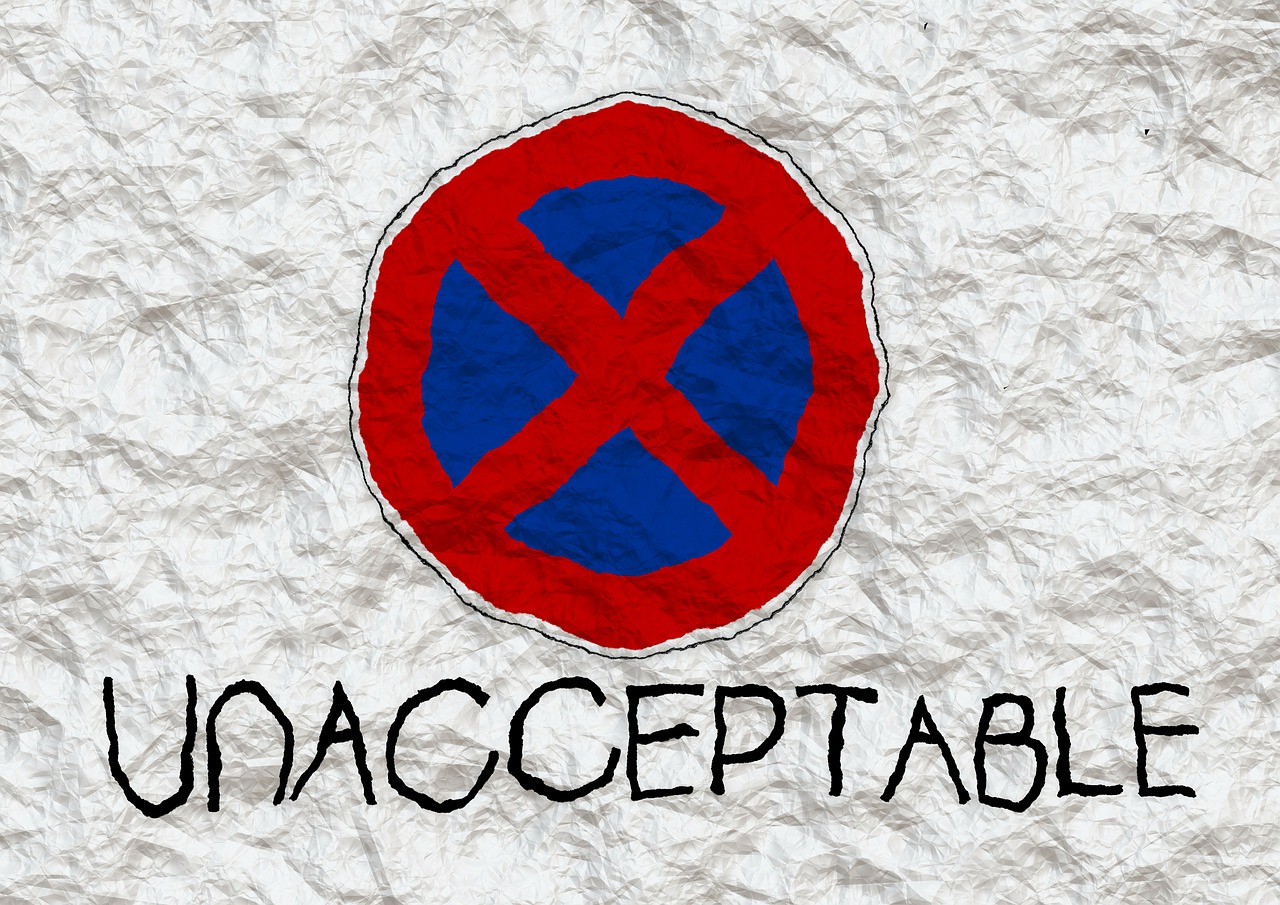Can You Use F Bombs in Your Marketing?

As a business-to-business marketer, you deal in the rough-and-tumble world of B2B. You don’t shy away from technical and complex industries. You thrive on the grittiness in B2B sectors. And you aren’t offended by blunt language or profanity.

So the question is this: if B2B people tend to be ok with the grittier side of business, is it ok to use F bombs (or other profanity) in your company’s marketing?
Are there times when it’s ok, and times that it isn’t? And what if you don’t use profanity personally, but your colleagues think it should be used in the company’s marketing?
Brands are using profanity more than ever before. But before we make a call on the use of swearing in B2B marketing – and keeping our knee-jerk reactions in check - let’s consider some pros and cons.
The Upside: What Swear Words Can Do For You
1. They carry an element of surprise
One of the main goals of marketing is to attract an audience. You can do this by surprising people, educating them, or luring them with a great offer. The latter two are always great, but sometimes the element of surprise is the best way to capture the attention of busy people.
And indeed - swear words are surprising. Swearing isn’t the only way to surprise people – but a line of copy like, ‘SHIT, we are selling fast!’, catches attention almost instantly. (That surprised you, didn’t it?)
2. They can boost your credibility
People who swear are believed to be more authentic. There are plenty of academic studies on the link between profanity and perceived honesty. So introducing profanity can give your company a boost in its perceived credibility. And credibility or trustworthiness is always an excellent thing in B2B.
3. They reflect confidence
Using profanity in marketing is not for timid and submissive brands. Swearing makes you stand out and sends the message that you are here to break some rules. If it’s aligned with your brand, it can make a lot of sense.
Confidence is one of the most important messages that a B2B company can send to the market. It can make your company a contender in a situation where it otherwise might not be.
You might argue that swearing isn’t the only way to reflect confidence. Agreed – it isn’t. But since it’s rarely used, it can be a good tool.
4. It signals an attitude or ‘voice’
Who doesn’t love people with strong opinions? Similarly, as a B2B marketer, having a voice is important since no one likes plain, beige and neutral blather. No matter how informative and relevant your data is, if it’s expressed in a boring and uninteresting matter, it SUCKS.
5. It sends a strong signal to like-minded people
One of the secrets of great B2B marketing is to connect with like-minded people. It’s always easier to work with like-minded people than those who are polar opposites.
Using profanity in marketing can help you connect with the people who are just as bad-ass as you are. They are ambitious, confident, and not afraid to stand out. Even if that means breaking the age-old notions, taboos, and dos and don’ts.
6. It isn't boring
People and companies don’t buy ‘boring’ as much as they used to. Yes, the expression ‘nobody gets fired for hiring IBM’ has been around a long time, and there’s still truth to it. But it isn’t as true as it once was.
We are living in an age of disruption. Unless companies make bold decisions, they are subject to decline. Sometimes the choice of a bold and unexpected vendor is the best choice.
Using profanity in marketing can help a B2B company convey that it’s bold and unexpected – and worth consideration.
The Downside: How Swear Words Can Hurt You
1. You’ll offend

The biggest risk in using profanity is that you’ll outright turn off your existing customers. If you’ve been in business a long time, you’ll have a large base of existing customers who are not accustomed to swearing (unless this is already something you do in your marketing).
Since the norm in business is not to use profanity, it will be a negative shock to those who currently do business with you. This means you run the risk of turning off a lot of people who are important to your company (your existing customers), with a less-likely upside of attracting new customers.
2. You risk your brand image by seeming unprofessional
If you have always been a ‘serious’ brand, using swearing words would be a major risk to your reputation. If it’s not true to how you’ve been seen in the market, it might seem a bizarre and risky move to introduce profanity into your public image.
For some, using profanity in marketing would be the ultimate unprofessional move. You might end up looking incompetent or immature. Some potential customers would consider you irrelevant, and rule you out from the running for particular contracts.
Is Anyone Using Profanity Well?
There are a few success stories for using profanity in marketing. You’ll find more examples in consumer marketing, or in companies who serve both consumer and business audiences (ie, B2B / B2C companies), and via ‘borrowing’ a profanity as opposed to using it outright.
Here are a few:
- “Fun My Life” (Consumer)
The “Fun My Life” campaign was started by Jell-O in an attempt to change the well-known meaning of negative acronym FML on social media. The brand explained that users are always looking for fun, and this phrase met their requirements.
The brand made full use of the opportunity and flooded social media with #FML hashtag and offered coupons to people who used this acronym. It was a tremendous success.
- “You booking did it” (Consumer and B2B)

This is a play on a commonly used negative phrase. The popular online travel site Booking.com used this in a commercial that shows groups of travelers who open their hotel rooms for the first time. Pleasantly surprised by the quality of rooms, the travelers use phrases like ‘you booking did it’ and ‘you got it booking right.’
The commercial was a huge success.
One comment: Booking.com is based in Amsterdam. The Dutch might have a higher tolerance for profanity?
- Gary Vaynerchuck (Consumer and B2B)
Gary Vaynerchuk is the founder of VaynerMedia, a marketing agency that provides social media expertise and services to Fortune 500 clients. He’s also a mentor to millions of entrepreneurs through his own Twitter and Instagram accounts, advocating tirelessly for ‘hustle’.
If you’ve spent more than 30 seconds watching or reading any Vayner content, you know that he loves – LOVES - the word fuck, or any variation on it (‘ing’, ‘er’, ‘ingly’ – you get it.) He’s made the use of profanity absolutely integral to his entire brand.
Here are a few more examples of profanity marketing in marketing (including two of the examples above).
Alternatives When You Don’t Want to Offend, but Want the Benefits of Swearing
Asterisks to the rescue
How about masking swear words with asterisks while also making them look obvious? Something along the lines of, Oh F*ck? Did you curse? And no, you didn’t, but yes, you did.
Go soft
Some swear words are less offensive than others. ‘Give a damn’ is softer than ‘give a shit’. So, if you want to try things out without going too far, this is an option.
Ask forgiveness and then swear
How about: ‘Pardon me for saying it, but Excel is fucking difficult.’ Think this strategy as asking for pardon when you don’t even mean it. The only benefit of using this strategy is that it doesn’t make you sound too offensive, and also signals your ‘good manners’ as a brand.
Conclusion
As you may be able to tell from our own use of profanity in this blog, we find it’s tough to use profanity in marketing that is in the public domain.
We’re entirely comfortable with swearing in business conversations in a one-to-one or small group setting. But somehow to commit profanity to writing in the public domain feels a step too far.
That said - we don’t feel it is verboten. It can be used powerfully by the right brands, both B2B and B2C.
If you have any examples of profanity done well in B2B marketing, we'd love to hear them.
Find us on social:
.png?width=2361&height=488&name=Mezzanine%20Logo_Horiz_RGB_on%20blue%20(1).png)





